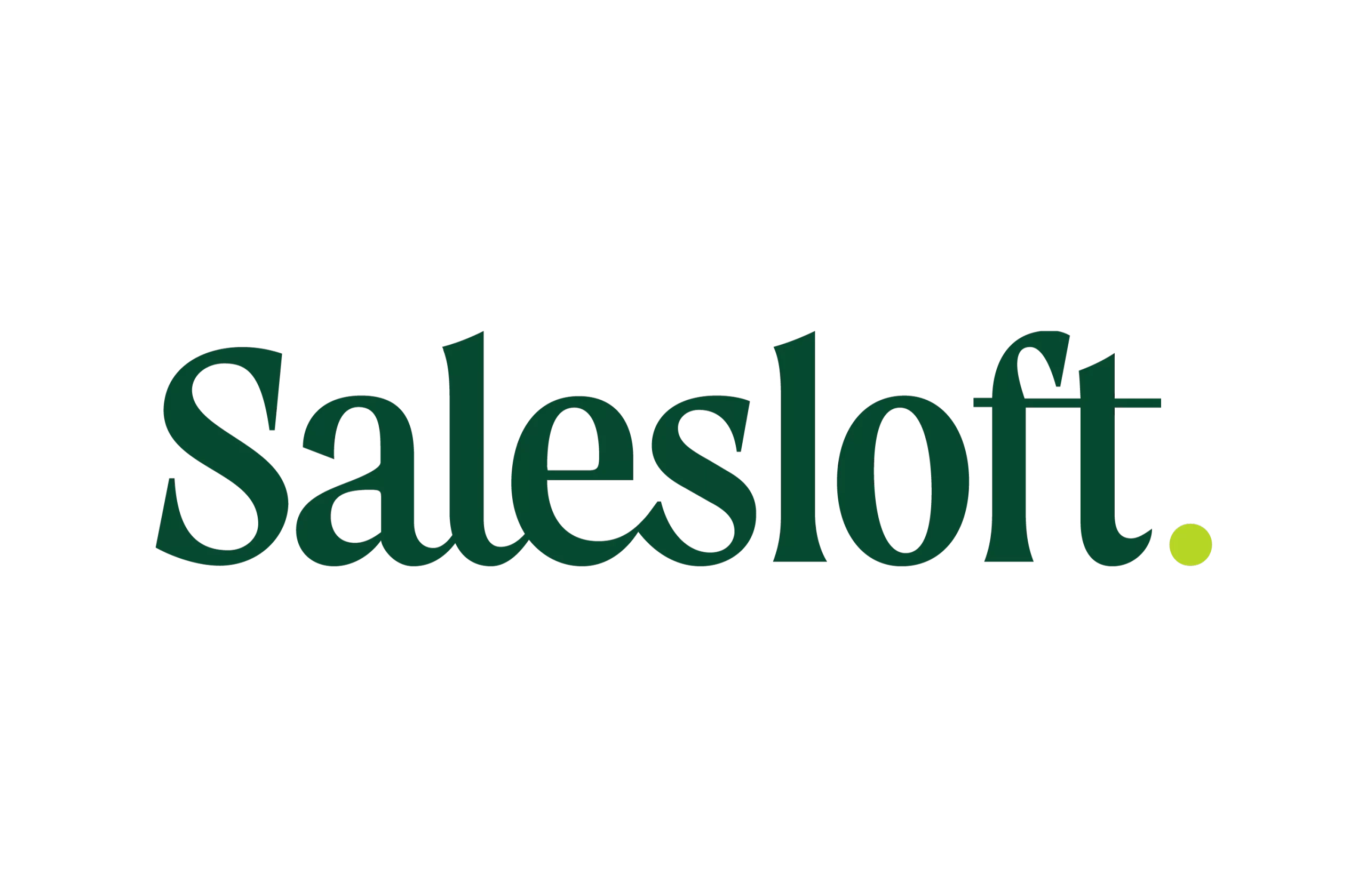If you can’t decide between Salesloft and Salesforce, you are in the right place. Salesloft and Salesforce are two marketing tools available, but their intended audiences are quite different. Compare them side by side:
Key Takeaways
- SalesLoft is a sales engagement platform designed to help sales teams with prospecting, sales emails, and cadence management. It offers features like email tracking, sales automation, and analytics to optimize the sales process. SalesLoft is ideal for sales-driven organizations that need tools to increase efficiency and enhance the effectiveness of their sales efforts. However, it focuses on sales engagement and may not provide the same level of overall customer relationship management features as Salesforce.
- Salesforce is a leading CRM platform used by businesses of all sizes. It offers a wide range of features, including sales automation, marketing automation, customer service, and analytics. Salesforce’s extensive customization options and integrations make it a versatile tool for managing customer relationships and sales processes. It is well-suited for businesses with complex sales and marketing operations that require a highly scalable and customizable CRM solution. While Salesforce provides robust sales and marketing features, integrating it with additional sales engagement tools like SalesLoft can enhance the overall sales productivity and customer engagement experience.
Main Differences Between Salesloft and Salesforce
SalesLoft focuses on sales engagement and outreach, while Salesforce is a comprehensive CRM platform with sales, marketing, and service capabilities. SalesLoft is suitable for businesses looking for specialized sales engagement, whereas Salesforce caters to enterprises seeking a broader CRM and customer lifecycle management solution. The choice between SalesLoft and Salesforce depends on whether users prioritize specialized sales engagement or require a complete CRM platform.
Pricing of Salesloft and Salesforce
Salesforce and SalesLoft are both sales engagement tools that offer different pricing plans based on the features and number of users. Here is a comparison of their pricing plans:
Salesforce
- Offers various products, each with unique pricing
- Typically, pricing will vary from $50/month to $350/month
- The High Velocity Sales edition, which is designed for sales teams, comes at $75/user/month with an annual contract
SalesLoft
- Offers different pricing plans based on the number of users and features
- Plans start at $75/user/month for up to 5 users
- The Professional plan costs $124/user/month for up to 10 users
- The Advanced plan costs $185/user/month for up to 10 users
- The Enterprise plan is available for larger teams and requires a custom quote
It’s worth noting that SalesLoft is solely focused on sales engagement, while Salesforce offers a wider range of features and capabilities for sales, marketing, and customer service. Additionally, SalesLoft offers reliable customer support and multiple training options, while Salesforce’s customer support can be hard to reach.
My experience with Salesloft and Salesforce
SalesLoft
In my experience, SalesLoft is a sales engagement platform that’s designed to help sales teams streamline their outreach and communication. It offers tools for email tracking, cadence management, and prospecting, making it a valuable resource for sales professionals.
However, SalesLoft is more specialized in its focus on sales engagement, and it might not cover the broader spectrum of functionalities that platforms like Salesforce offer, such as customer relationship management and marketing automation.
Salesforce
Salesforce is a comprehensive customer relationship management (CRM) platform that offers a wide range of features for sales, marketing, customer service, and more. It’s known for its scalability and customization options, making it a versatile solution for businesses of all sizes.
While Salesforce encompasses various aspects of business operations, it might also come with a steeper learning curve due to its extensive capabilities. If you’re looking for an all-inclusive platform to manage multiple aspects of your business, Salesforce could be the way to go.
Consider your business needs – SalesLoft for sales engagement and communication optimization, or Salesforce for a broader CRM solution that covers sales, marketing, and customer service functionalities.
Our Winner: Salesforce
After analyzing both Salesloft and Salesforce, we concluded that the best choice overall is Salesforce.
This obviously doesn’t mean that the other choice is particularly bad. For some particular cases could even be the other way around, depending on your specific needs.





